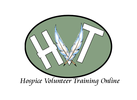Medicare Will Experiment With Expansion Of Hospice Coverage
Topics: Aging, Medicare, Health Reform
By Michelle Andrews Sep 07, 2010 About this time last year, voters and politicians were consumed by the rumor, fanned by health-care overhaul opponents, that the legislation would include "death panels" of government bureaucrats who could "pull the plug on Grandma" if she needed costly care.
The outcry led legislators to scrap a provision of the House bill that would have paid for voluntary consultations between physicians and Medicare beneficiaries about end-of-life care: living wills, hospice benefits and the like. More From This Series: Insuring Your Health
Since the furor died down, end-of-life care has been mostly out of the spotlight. But misperceptions remain. A July poll by the Kaiser Family Foundation found that 36 percent of seniors still believe that the overhaul creates "death panels." Another 17 percent said they didn't know one way or the other.
Many people may not realize that, in some ways, the new law will expand options for patients at the end of life.
One of these involves hospice care, in which a team of specially trained providers treats dying patients' pain and other symptoms but doesn't try to cure the underlying disease. The team also helps the patients' families, instructing them in caring techniques and providing bereavement counseling after death. Under current Medicare rules, beneficiaries whose doctors determine that they have less than six months to live can choose hospice care -- but only if they forgo any further life-prolonging treatment related to their disease.
The new law establishes a three-year "concurrent care" demonstration program at 15 sites nationwide, in which Medicare would cover both kinds of treatment simultaneously.
Although the vast majority of patients seeking hospice benefits are over 65, starting in 2013, the new law also allows children who are enrolled in Medicaid or the Children's Health Insurance Program (CHIP) to receive both hospice and curative care.
Some private insurers, such as Aetna and UnitedHealthcare, have been offering concurrent care to their private-market clients for years.
Experts agree that hospice benefits can provide crucial support for both patients and families during a very difficult time, and some research indicates they may extend the patient's life. Yet fewer than 40 percent of patients are in hospice care when they die, according to the National Hospice and Palliative Care Organization.
Many terminally ill patients wait until death is imminent to choose hospice care. The median length of time in hospice was just over 20 days in 2008; more than a third of people died or were discharged from hospice in seven days or less.
"We think it's far too short a period for patients and their families to adjust to the realities of impending death," says Jon Keyserling, vice president of public policy and counsel for the NHPCO.
Adding support to the notion that providing curative and supportive benefits together is good for patients is a study published last month in the New England Journal of Medicine. It found lung cancer patients who received specialized care to help manage their physical and psychosocial symptoms while they were undergoing standard cancer treatment received less aggressive end-of- life care but lived longer than patients who received standard cancer treatment alone.
After going through a couple of rounds of chemotherapy and many radiation treatments to treat his lung cancer, Crune Carawan finally decided he’d had enough. Somewhat reluctantly, his wife, Judith, who’d been caring for him since his diagnosis in May 2009, called a hospice center near their home in Columbus, Ohio. "I was skeptical about hospice," she says.
She quickly changed her mind. Three hospice nurses came to the home, evaluated her husband and adjusted his medications, making sure he wasn't in any pain. They ordered a hospital bed and got it set up that same day.
Over the course of the next week, a nurse visited several times to help calm him when he felt anxious. They also talked with her about what to expect and gave her a small book that described the changes she might see in him. He died seven days after their first visit.
"I kind of do wish they'd come in earlier," Judith Caravan says. "He really enjoyed the nurses. They'd come in and laugh with him."
Hospice professionals say patients and family members are better served if they use hospice benefits for about two months.
Experts agree that the requirement that they forgo curative treatment stops some Medicare patients from choosing hospice. Even when aggressive therapy may provide little therapeutic benefit while severely diminishing the patient's quality of life, it's not easy to say "no more." Once the 15 demonstration sites are up and running, expected sometime in 2012, participants won't have to make that choice. kff.org © 2010 Henry J. Kaiser Family Foundation. All rights reserved.




